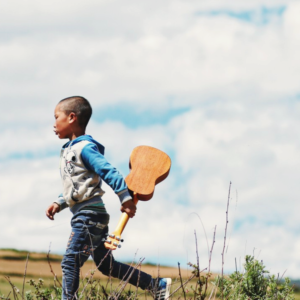Guiding Children Towards Growth Mindset
by Deepika, Tournesol Kids volunteer

Carol Dweck, an eminent psychologist, showed through her research that there are two types of mindsets: a fixed mindset and a growth mindset.
In a fixed mindset, people believe their qualities are fixed traits and cannot change. They also believe that talent alone leads to success, and effort is not required. Those stuck in fixed mindset thinking speak in generalizations, taking things out of context and dividing the world into black/white, right/wrong, good/bad, success/failure. This is a deep source of conflict in our world today.
A growth mindset is “the understanding that abilities and understanding can be developed.” Those with a growth mindset believe that they can get smarter, more intelligent, and more talented through putting in time and effort. People believe that their basic abilities are simply a starting point and that everyone can become smarter if they try.
These days many children become conditioned to think that their mind has a finite capacity to contain information. Due to the various rigid standards set by the education curriculum, it tends to promote fixed mind thinking. Children (& adults) who use fixed-mind thinking imagine their mind to be like a file cabinet. In an effort to keep up with the pressures of a standardized one-size-fits-all curriculum, students and teachers run the risk of losing a personal connection to the learning experience. The smaller the box we try to squeeze kids into, the more kids are bound to fall outside of the box.
In reality, research has shown through neuroplasticity that our mind is more like a plant that keeps branching outward, making new connections and growing. This is the real power of growth mind thinking. The Tournesol Kids Program teaches coaches, teachers, parents and children how to recognize the signs of fixed mind thinking as a sign of deep insecurity in need of support.
There are eight general approaches for guiding& developing the foundation for a growth mindset that teachers and parents can apply:
- Create a new compelling belief: a belief in oneself, in their own skills and abilities, and in their capacity for positive change.
- View failure in a different light: see failure as an opportunity to learn from experiences and apply what they have learned next time around.
- Cultivate self-awareness: work with the children and help them become more aware of their talents, strengths & weaknesses.
- Be curious and commit to lifelong learning
- Get friendly with challenges
- Help children develop the passion. When they love what they do, they can focus and succeed much better.
- Be tenacious: Teach the children to be curious and adopt a hard working nature. It takes a lot of hard work to succeed, weathering obstacles and getting back up after each time you fall.
- Inspire and be inspired by others: it can be tempting to envy others when they succeed, especially if they go farther than you, but it will not help you to succeed; commit to being an inspiration to others and use the success of others to get inspiration as well.
